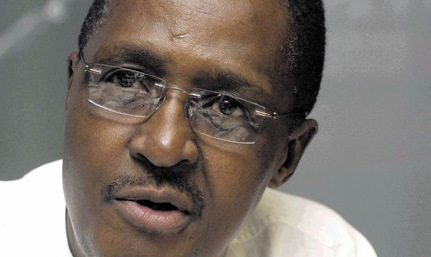|
 |
|
Prof Barney Pityana
Photo: Supplied
24 April 2013 |
Well-known academic and human rights lawyer Prof Barney Pityana will deliver the inaugural Bram Fischer Memorial Lecture on Friday 26 April 2013,honouring the life and legacy of the anti-apartheid stalwart. Prof Pityana will be joined by Fischer’s daughters Ruth Rice and Ilse Wilson and his nephew Peter in the President CR Swart Auditorium on the Bloemfontein Campus.
Prof Pityana has an impressive track record of accomplishments:
He is the current Rector of the College of the Transfiguration in Grahamstown; one of the founding members of the South African Students' Organisation; an important figure in the Black Consciousness Movement with Steve Biko; and an exponent of Black theology.
Prof Pityana is the former Principal and Vice-Chancellor at the University of South Africa (UNISA) and also a former chairperson of the South African Human Rights Commission.He has served on the African Commission on Human and Peoples' Rights at the Organization of African Unity in 1997. Prof Pityana’s work in human rights has been widely recognised and in December 2002 he was awarded an Honourable Mention of the 2002 UNESCO Prize for Human Rights Education.
In April 2006, Prof Pityana received the Award of the Order of the Grand Counsellor of the Baobab: Silver from former President Thabo Mbeki.
Prof Pityana will meet with students from the Faculty of Law during the day of the lecture. At 12:00 the Institute for Reconciliation and Social Justice will host a critical conversation discussing Bram Fischer as a father and Afrikaner communist lawyer. The conversation will feature the perspective of his daughters. The Bram Fischer Memorial Lecture will commence at 18:30.
Programme:
1. Critical Conversation: Bram Fischer as a father and Afrikaner communist lawyer
Date: Friday 26 April 2013
Venue: Institute for Reconciliation and Social Justice
Time: 12:00 – 14:00
2. Inaugural Bram Fischer Memorial Lecture
Date: Friday 26 April 2013
Venue: President CR Swart Auditorium
Time: 18:30 – 20:00